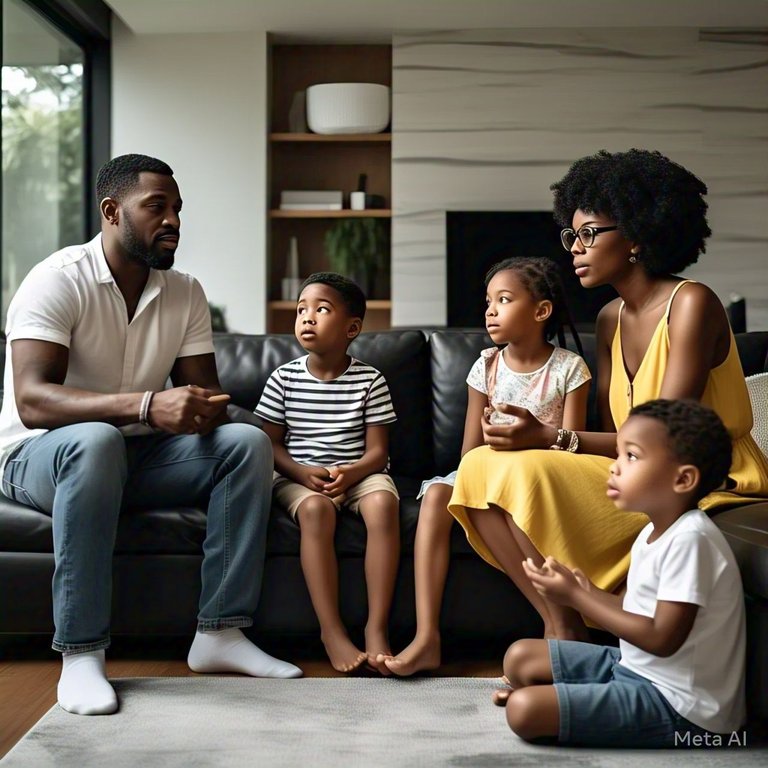Setting Foundations and Nurturing Perspectives
Social Studies and Civic Education did a good job to educate us on societal norms and values. They even went ahead to put us through knowledge of the parental aspect and perspective of this. Nevertheless, the smallest, most important, most influential unit of the society; the family, remains paramount, with a bigger role in inculcating this knowledge. It's believed that—for the most, except otherwise—a child, and his or her approach to or in life is a reflection of the values gotten at home.

It's usually said that what a child sees the parents doing, it inadvertently becomes a part and parcel of the child too. Mostly through subconscious learning. So, you'll hear it being said that parents should avoid quarrelling and or fighting before the child. This might be said as a means to safeguard the child's emotional wellbeing, but then another underlying fact is that it might get developed in the child as a part of his or her norms.
I guess I can safely say that parental norms and values are "are the guiding principles and beliefs that parents adopt and transmit to their children, shaping their conduct, mindset, and development." Parental norms and values revolve around some words. Words such as beliefs, standards, principles, character, attitude, upbringing, qualities and the likes. These are the things that can shape a child's view of the world. All originating from the home, more precisely, from the values of the parents.
Parents are to be intentional about their own values and norms. What you have is what you give; consciously or unconsciously. The values parents possess have the ability to shape their parenting style, their connection with the child, their actions and decisions, ultimately playing a part in the child's upbringing, personality and perspective about the world.
Parental norms and values mean a lot to the development and upbringing of a child. Believe me, it can make or mar a child. Hence, a call for intentional parenting. There should be a deliberate effort on the part of parents to ensure the children consume only what it right and acceptable. Just like with food, what you take in can affect you within and without.

May I also state that an unintending or unintentional effort to inculcate some values in a child is an indirect way of inculcating some other values. The child will always learn; so, it's either from the parents or other sources. In whatever sense, values must be developed that will later become norms.
When speaking of these norms and values, it's necessary to mention that they arise from different aspects and contexts. These such as, cultural expectations, social integration, religious beliefs, educational aspirations, moral principles, family traditions, communication styles, and a whole lot of others. It's why you find that, a child strongly inclined to something is mostly traced to the parental influence. It's abruptly what has been inculcated into the child consciously—through thoughtful deliberate efforts, or unconsciously—through unintentional efforts that were perceived and absorbed by the child.
These values and norms have the ability to even shape a child's future. It's always advised and instructed that a positive atmosphere be maintained in the home as much as possible, such that the child picks up to be positive about life, and not a negative mediocre attitude.
Problem is that some parents leave it at the discretion of the teachers at school to imbibe these values into their children, failing to realise they have the sole responsibility. Okay, one issue is, does one even know the values of the teacher in question? It shouldn't be surprising then when one begins to find out some disturbing attitude from the child. For what it's worth, the teacher or maybe one neighbour did a good bad job there.
This is my entry for the #februaryinleo prompt, Day 13 in collaboration with Hive Reachout. You can participate here.
All images are AI generated
Thank you for reading!
Posted Using INLEO